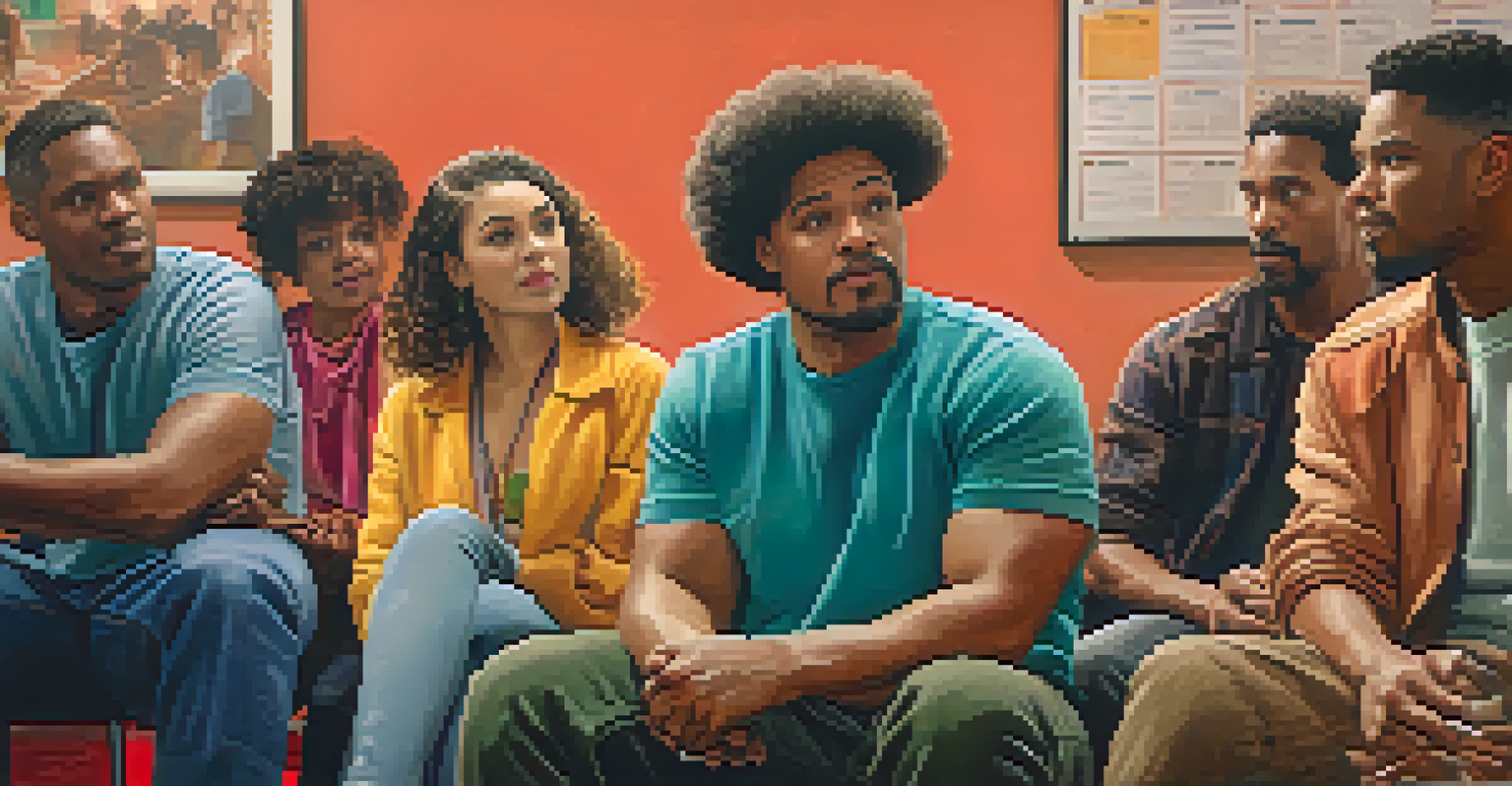Casting Choices: The Director's Role in Actor Selection

The Importance of Casting in Film Production
Casting is one of the most critical aspects of film production. A well-chosen cast can elevate a script and bring characters to life in ways that resonate with audiences. When directors make casting choices, they’re not just filling roles; they’re setting the tone for the entire film.
Casting is the most important part of the filmmaking process. It’s the foundation of the entire film.
Each actor brings a unique energy and interpretation to their character, which can dramatically affect the film's overall message. For instance, a comedic actor might infuse a dramatic scene with unexpected levity, potentially altering the viewer's emotional response. Therefore, casting should be approached with deliberate thought and consideration.
Ultimately, a director's vision and the actors' abilities must align perfectly to create a captivating narrative. This harmony can lead to unforgettable performances that stay with viewers long after the credits roll.
Understanding the Director's Vision
A director’s vision is the blueprint for a film, dictating everything from the storyline to the visual aesthetic. This vision often informs casting decisions, as directors seek actors who can embody their specific interpretations of characters. For example, if a director envisions a brooding protagonist, they might look for an actor known for their intensity.

Directors also consider how an actor's previous performances align with their vision. An actor who has successfully portrayed complex characters may be more appealing for a role that requires depth. This careful alignment helps ensure that the film stays true to the director’s artistic intent.
Casting Shapes Film's Narrative
The right cast elevates a script, bringing characters to life and influencing the film's overall impact.
Thus, understanding a director's vision is essential not only for the casting process but also for the overall success of the film. Actors who resonate with this vision contribute to a more cohesive and engaging narrative.
The Audition Process: A Director's Playground
The audition process is where a director's casting choices begin to take shape. During auditions, directors not only evaluate an actor's skills but also their chemistry with other cast members. This interplay can reveal how well an actor might fit into the film's dynamic.
A good director can make a good movie with a bad script, but a bad director can ruin a good script with bad casting.
Moreover, auditions provide a unique opportunity for directors to see an actor's range and adaptability. A single scene can be interpreted in numerous ways, showcasing an actor’s creativity and understanding of the character. Directors often look for those who can surprise them with unexpected choices.
In essence, auditions serve as a playground for directors, allowing them to experiment with various interpretations and combinations. This process is vital for finding the perfect fit, making it an integral part of casting.
Balancing Star Power and Emerging Talent
In the world of film, there’s often a tug-of-war between casting established stars and giving opportunities to emerging talent. While big names can draw audiences and lend credibility, fresh faces may bring authenticity and a unique perspective. Directors must weigh these factors carefully when making casting decisions.
Star power can sometimes overshadow the story, leading to a performance that feels more like a spectacle than a genuine portrayal. Conversely, lesser-known actors might bring a refreshing depth to their roles, enhancing the film's overall impact. Directors often find themselves in a balancing act, striving to combine both elements for the best outcome.
Chemistry Enhances Audience Engagement
Believable chemistry between actors creates emotional connections that resonate deeply with viewers.
Ultimately, the choice between established stars and new talent can shape the film's narrative in profound ways. A director's ability to navigate this landscape effectively can lead to a richer cinematic experience.
The Role of Chemistry in Actor Selection
Chemistry between actors is a crucial element in casting decisions. Directors often seek out pairings that can create believable relationships on screen, whether they are romantic, familial, or adversarial. This chemistry can significantly enhance the film's emotional impact and audience engagement.
During auditions, directors pay close attention to how actors interact with one another. Sometimes, unexpected pairings can yield remarkable results, resulting in a dynamic that feels genuine and relatable. A director’s role is to identify these synergies and harness them for the film's benefit.
In essence, chemistry is a silent yet powerful player in the casting process. Directors who recognize and prioritize this aspect can craft performances that resonate deeply with viewers.
Cultural Representation and Diversity in Casting
In today’s film industry, cultural representation and diversity in casting have become increasingly important. Directors have a responsibility to reflect the world in their films, ensuring that various voices and experiences are represented authentically. This approach not only enriches storytelling but also fosters a more inclusive audience.
Diversity extends beyond race and ethnicity; it includes gender, age, and ability, all of which can add layers to a film's narrative. By embracing a broader spectrum of talent, directors can tell richer, more nuanced stories that resonate with a wider audience. This has been a transformative shift in how casting decisions are approached.
Diversity Enriches Storytelling
Prioritizing cultural representation in casting leads to more nuanced narratives that reflect a wider range of experiences.
Ultimately, prioritizing diversity in casting can lead to more meaningful and impactful films. Directors who focus on inclusive practices contribute to a more equitable industry and inspire future generations of filmmakers.
The Impact of Casting on Audience Reception
Casting choices have a direct impact on audience reception and overall film success. Viewers often develop expectations based on the actors featured in a film, which can influence their willingness to watch it. A popular actor might draw in a larger crowd, while a less familiar cast could intrigue a more niche audience.
Furthermore, the authenticity of an actor's performance can greatly affect how audiences connect with the story. If viewers believe in the characters portrayed, they are more likely to engage emotionally with the film. Directors, therefore, must consider how their casting decisions will resonate with the intended audience.

In conclusion, casting is not just about filling roles; it's about crafting a connection between the film and its viewers. A director's ability to choose wisely can make all the difference.